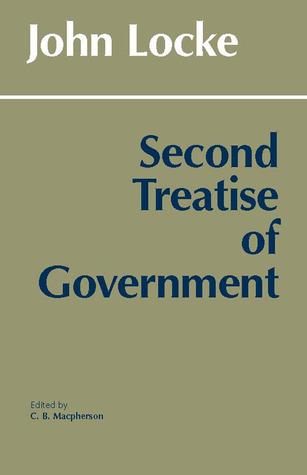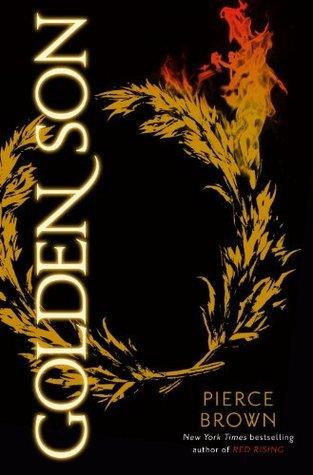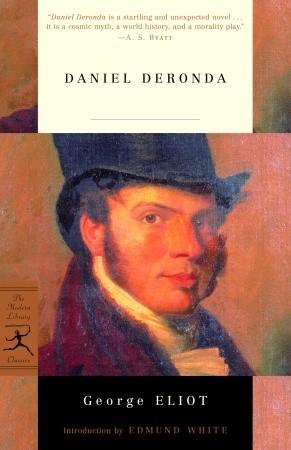Second Treatise of Government by John Locke Book Summary
Discover a comprehensive summary and key insights from John Locke's "Second Treatise of Government." Explore its impact on political philosophy and modern governance in our detailed review. Unlock the principles that shaped democracy and individual rights today.
Second Treatise of Government Book Summary
John Locke's Second Treatise of Government revolutionized political philosophy by challenging the divine right of kings and establishing the foundation for modern democratic thought. This groundbreaking 1689 work argues that legitimate government derives from the consent of the governed and exists primarily to protect individual rights to life, liberty, and property. Locke's theories directly influenced the American Revolution and continue to shape constitutional democracies worldwide. His concepts of natural rights, social contracts, and the right to revolution remain profoundly relevant today, making this treatise essential reading for understanding the philosophical underpinnings of limited government and individual freedom in contemporary political systems.
Enhance your understanding by exploring The Prince Book Summary, Review & Key Insights for a concise analysis that reveals timeless strategies and essential lessons from Machiavelli's classic.
Second Treatise of Government by John Locke - Introduction
I just finished reading Second Treatise of Government by John Locke, and honestly, I had no idea that the idea of government by consent was such a radical concept back in the 17th century. Locke basically argues that governments only have power because people agree to give it to them—not because kings are divinely appointed or anything like that. It made me rethink how I view authority and the whole idea of personal freedom in society.
I picked up this book initially because I was curious about the roots of modern democracy and political thought. It’s a classic in philosophy, politics, and history, and at just 148 pages, it’s surprisingly accessible for something so foundational. I figured it would be a dense academic read, but it’s actually pretty engaging once you get into Locke’s arguments.
If you’re someone who’s ever wondered about the why behind government, laws, and your rights—or if you’re studying political science, government, or history—this book is a must-read. It’s perfect for students, curious minds, or anyone who wants to understand the principles that shape modern societies. Plus, it’ll take you about 3-4 hours to read, so it’s a manageable deep dive.
Honestly, reading it felt like having a conversation with someone who’s challenging you to think differently about power and freedom. If you’re up for that, I think you’ll really enjoy it.
What is Second Treatise of Government About?

The Second Treatise of Government by John Locke discusses the principles of political authority and the nature of government, emphasizing the importance of individual rights and the social contract. The book's main message is that legitimate government is based on the consent of the governed and exists to protect natural rights, such as life, liberty, and property. Key concepts include the idea of the state of nature, the role of government as a protector of rights, and the right of the people to revolt against unjust authority.
About Book Author - John Locke
Ladies and gentlemen, it’s my pleasure to introduce you to a remarkable thinker, John Locke. Born into a world of political upheaval, Locke didn’t start out as the philosopher we know today. His early experiences during the English Civil War shaped his views on governance and human rights, ultimately leading him to pen the influential Second Treatise of Government.
What’s interesting about John Locke is that he was also deeply involved in the world of medicine and science, a lesser-known facet of his life that informed his philosophical inquiries. His work, including Essay Concerning Human Understanding, showcases his belief in the power of reason and empirical evidence.
Locke’s unique perspective stems from his firsthand experiences with tyranny and his commitment to individual liberty. This background not only qualifies him to discuss government and society but also allows him to resonate with our ongoing quest for freedom and justice. Today, we’re fortunate to hear insights from a mind that has profoundly shaped modern democratic thought.
More Books To Find
Second Treatise of Government - Book Overview
It's essentially about the idea of government as a social contract. Locke argues that people have natural rights—like life, liberty, and property—and that governments are formed to protect those rights. If a government fails to do that, people have the right to overthrow it. Think of it like a security system for your home; if it stops working or turns against you, you’d want to find a new one.
Locke wrote it because he was frustrated with the absolute power of monarchies. He wanted to challenge the status quo and promote a system where the government is accountable to the people. It’s like when you realize your favorite restaurant has gone downhill; you want to advocate for change rather than just accept it.
What sets it apart from other political philosophy books is its focus on individual rights and consent. While other thinkers like Hobbes emphasized fear and control, Locke emphasized freedom and cooperation. It’s more about empowering individuals than just establishing order.
One story that really stuck with me is Locke's idea of the "state of nature." He describes it as a time when people lived freely but also faced the risk of conflict. It’s like a wild playground where everyone can run around, but without rules, fights are bound to happen. This analogy really drives home why we need government—to create a safe space where everyone can enjoy their rights without stepping on each other’s toes.
Key Insights of Second Treatise of Government
Natural Rights: Locke emphasizes the concept of natural rights, arguing that individuals are born with inherent rights to life, liberty, and property. These rights are not granted by the government but are fundamental to human existence.
State of Nature: He describes the state of nature as a condition where individuals live freely and equally without a governing authority. In this state, people are guided by reason and can coexist peacefully, but the absence of a common authority can lead to conflicts.
Social Contract: Locke introduces the idea of the social contract, where individuals consent to form a government to protect their natural rights. This contract is based on mutual agreement and serves as the foundation for legitimate political authority.
Government's Role: The primary role of government, according to Locke, is to safeguard the natural rights of its citizens. If a government fails to do so or becomes tyrannical, the people have the right to revolt and establish a new government that will uphold their rights.
Separation of Powers: Locke advocates for a system that limits governmental power through a separation of powers. This ensures that no single entity can dominate or infringe upon the rights of individuals, promoting a system of checks and balances that protects liberty.
Who Should Read This Book
The "Second Treatise of Government" by John Locke is essential reading for anyone interested in political philosophy, history, or the foundations of modern democracy. It appeals to students, scholars, and activists seeking to understand concepts of natural rights, government legitimacy, and the social contract. Those engaged in discussions about individual liberty, property rights, and the role of government will find Locke's ideas particularly relevant. Additionally, policymakers and citizens interested in the principles that underpin democratic societies can gain valuable insights from Locke's arguments, shaping their views on governance and civic responsibility.
Read If You Are
- interested in the foundations of modern political philosophy
- seeking to understand concepts of natural rights and government authority
- a student or scholar of Enlightenment thought and its impact on democracy
Skip If You Are
- Not interested in political philosophy or theories of government
- Prefer modern perspectives over historical texts
- Looking for a light, entertaining read rather than a foundational political work
Important Takeaways from this Book
-
Reflect on Your Rights: Take 10 minutes to write down your fundamental rights and freedoms. Understanding your rights empowers you to advocate for yourself and others. Recognize that awareness is the first step toward protecting your liberties.
-
Engage in Community Discussions: Attend a local town hall or community meeting this week. Engaging with your community fosters dialogue about governance and your rights, strengthening democracy. Be prepared to listen and share your perspective; your voice matters.
-
Practice Consent in Relationships: Evaluate your personal relationships and ensure that all interactions are based on mutual consent. This promotes respect and equality, creating healthier connections. Consider discussing boundaries openly with those close to you.
-
Educate Yourself on Governance: Dedicate 30 minutes today to read about your local government structure and its functions. Understanding how your government operates helps you navigate it effectively and make informed decisions. Look for reputable sources or local civic organizations for guidance.
-
Advocate for Change: Identify one social issue you care about and write a letter to your local representative expressing your views. Advocacy can lead to meaningful change and demonstrates civic engagement. Ensure your letter is respectful and includes specific suggestions or requests for action.
Book Review
I picked up John Locke's "Second Treatise of Government" expecting a dense philosophical text, but I was pleasantly surprised by how accessible his writing is. Locke’s clear prose and structured arguments made it easier to digest complex ideas about government and individual rights than I anticipated.
One of the strengths of this work is Locke's ability to articulate the concept of natural rights. His discussions on life, liberty, and property are not just theoretical; they resonate deeply in today’s political climate. For example, his argument about the social contract and the consent of the governed feels remarkably relevant. The way he lays out his ideas in a logical sequence kept me engaged throughout, and I appreciated the historical context he provided.
However, there were moments where I felt the pacing dragged, particularly in the more detailed sections about property rights. While I understand the importance of these discussions, they sometimes felt overly lengthy and could have been more concise. Additionally, some of his examples, while enlightening, were a bit dated and could benefit from modern parallels to help contemporary readers relate better.
In comparison to other political philosophy texts I've read, like Rousseau's "The Social Contract," Locke’s work feels more pragmatic and less idealistic. If you’re interested in foundational political theory and enjoy a straightforward writing style, I highly recommend this book. However, if you prefer more narrative-driven or modern political discussions, you might find it a bit dry.
Overall, I found "Second Treatise of Government" to be a thought-provoking read that’s essential for anyone interested in the roots of modern democracy, but it may not appeal to those who shy away from philosophical discourse.
Final Thoughts
If I'm being honest, finishing the Second Treatise of Government was quite an eye-opener. Locke’s ideas about natural rights and the social contract really made me rethink how we view government and authority. My overall takeaway is that the foundation of modern democracy owes a lot to his thoughts on individual liberty and governance.
I'd definitely recommend this if you're a philosophy buff or someone interested in political theory. However, skip this one if you're looking for a light read or something purely entertaining; it’s dense and requires some patience. The thing that surprised me most was how relevant Locke’s concepts still feel today, especially in discussions around personal freedom and government overreach.
One thing that will stick with me months from now is the idea that governments derive their power from the consent of the governed—it's a powerful reminder of our role in shaping society. While I appreciate the summary for a quick grasp, I think I’d prefer to read the full book again to really dive into Locke’s arguments and nuances.
On a personal note, this reading experience was rewarding, challenging me to think critically about concepts I often take for granted.
Frequently Asked Questions
How long does it take to read Second Treatise of Government?
The average reading speed is about 30-40 pages per hour. Therefore, it would take approximately 4-5 hours to read the 148 pages of John Locke's "Second Treatise of Government," depending on your reading pace and comprehension level.
What makes "Second Treatise of Government" different from other books in this genre?
The Second Treatise of Government stands out for its foundational role in liberal political theory, emphasizing natural rights, government by consent, and the right to revolt. Locke's clear, rational arguments and focus on individual liberty significantly influenced modern democratic thought, differentiating it from contemporaneous works.
Who is the target audience for Second Treatise of Government
The target audience for John Locke's "Second Treatise of Government" includes political philosophers, students of political science, historians, and anyone interested in the foundations of modern democracy and liberal thought. It appeals to those seeking to understand concepts of natural rights, government legitimacy, and individual freedom.
Are there any criticisms or limitations of Second Treatise of Government
Critics argue that Locke's theories on property and consent may justify inequality and overlook social justice. Additionally, his views on the state of nature are seen as overly simplistic, and some believe his ideas do not adequately address the complexities of modern governance and individual rights.
What is the main theme of Second Treatise of Government by John Locke
The main theme of John Locke's "Second Treatise of Government" is the concept of natural rights, including life, liberty, and property. Locke argues for the social contract and the idea that government’s legitimacy comes from the consent of the governed, emphasizing individual freedom and limited government.
Tags:
John Locke, Second Treatise of Government, Second Treatise of Government Author, Second Treatise of Government Book, Second Treatise of Government Book Description, Second Treatise of Government Book Rating, Second Treatise of Government Book Review, Second Treatise of Government By John Locke, Second Treatise of Government ISBN, Second Treatise of Government Short Summary

Michel Fisher
Michel Fisher is a passionate fiction enthusiast and book blogger who writes about emotional reads, character-driven stories, and contemporary romance authors that captivate hearts and minds.

Second Treatise of Government
Book Overview
Description
The Second Treatise is one of the most important political treatises ever written and one of the most far-reaching in its influence. In his provocative 15-page introduction to this edition, the late eminent political theorist C. B. Macpherson examines Locke's arguments for limited, conditional government, private property and right of revolution and suggests reasons for the appeal of these arguments in Locke's time and since.
Key Points
Natural rights protect life liberty property
Characters
Publisher
Hackett Publishing Company (Indianapolis, IN)
First Publish Date
12/28/89





